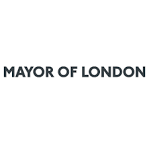Department for International Development – 2019 Press Release on British Medics in Samoa
Below is a press release issued by the Department for International Development on 21/12/2019.
UK aid workers have helped millions of people around the world this year.
International Development Secretary Alok Sharma has hailed the UK’s ‘humanitarian heroes’ – the thousands of aid workers working overseas who’ve helped millions of people around the world in 2019.
From fighting Ebola in the Democratic Republic of Congo to dealing with humanitarian emergencies like the Rohingya crisis in Bangladesh, and reacting to Cyclone Idai in Mozambique, Zimbabwe and Malawi, UK aid heroes have worked tirelessly across the globe to save lives.
UK aid efforts are currently focused on sending British medics to fight a deadly measles outbreak in Samoa over Christmas.
And throughout 2019, UK aid has been at the forefront of tackling major global challenges
Thanks to UK aid:
Over 250,000 people have received vaccinations against Ebola in the Democratic Republic of Congo and neighbouring countries since August 2018 – amid the ongoing threat of violent attacks on brave health workers.
Aid heroes helped the survivors of Cyclone Idai with food for 700,000 people and temporary shelter for 50,000 people.
More than 20 million women and girls in the world’s poorest countries a year can now access contraception, helping to save over 8,000 lives and prevent over seven million unintended pregnancies that can stop girls going to school and fulfilling their potential.
45 million children around the world have been vaccinated against polio, which means Nigeria could be certified polio free in 2020.
More than 550,000 people at risk of starvation in Zimbabwe have received food and vital cash assistance.
100,000 Rohingya refugees in Bangladesh received food for a year, while 250,000 were given clean water and sanitation.
One million Yemenis have received food, access to better water supply and sanitation each month and 70,000 children have been treated for malnutrition.
Developing countries will receive more help to tackle the impact of climate change as we double our aid spend in this area.
Some of the most vulnerable people affected by the Syria conflict received food and medicine – with over a million vaccinations and almost 30,000 food rations.
International Development Secretary Alok Sharma said:
I want to thank the many UK aid workers who have helped millions of people around the world in 2019, including those at risk from Ebola or polio, humanitarian crises and conflicts. It is crucial our work continues in 2020, with 1 in 45 people around the world facing a humanitarian crisis next year.
The work of these aid heroes never stops. Right now, for example, UK medics are helping children in Samoa suffering from measles – a deadly disease, but one which is entirely preventable. I am proud that they are giving up Christmas at home to save lives.
The UN has warned that nearly 168 million people will need humanitarian assistance in 2020 – the highest figure in decades.
Becky Platt, a paediatric nurse from Hertfordshire, spent two weeks with the UK’s Emergency Medical Team (EMT) in Samoa tackling the measles outbreak earlier this month. Other members of the EMT are working in Samoa over Christmas.
Becky said:
“We cared for some of the most critically unwell children I have seen in over 20 years of nursing during the measles outbreak in Samoa.
While being incredibly challenging, the experience was also hugely rewarding, and I believe we made a real difference to children and families.
It was an opportunity to work with outstanding international colleagues and to bring valuable skills and experience to our work in the NHS.”



